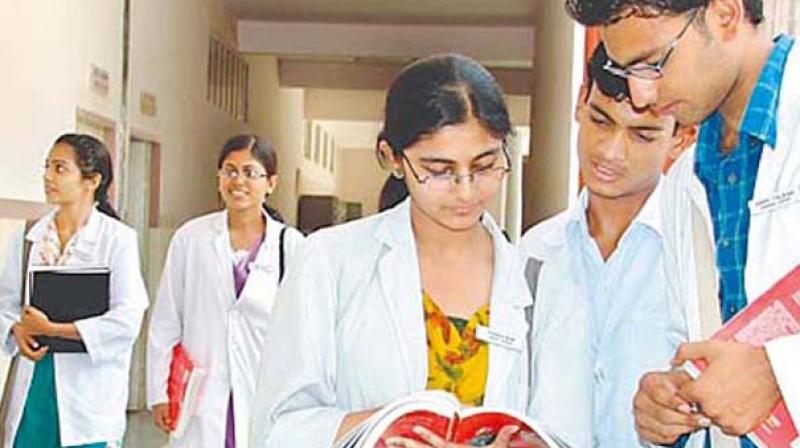
Asian students will receive free medical education in Japan.
The Ministry of Health, Labour, and Welfare intends to pay for the tuition and living expenses of a limited number of Asian international students enrolled in Japanese medical schools.
This effort, which the ministry is launching for the first time, aims to increase the use of Japanese pharmaceuticals and medical equipment throughout Asia while also making a contribution to the global community.
The ministry intends to admit roughly 20 students, and the program is anticipated to begin as early as fiscal 2026. To test its efficacy, the program will be run on a trial basis. The Economic Research Institute for Asean and East Asia, a global organisation with its headquarters in Indonesia and funding from Japan, will be used to recruit applicants.
After receiving Japanese language instruction in their native countries, the chosen individuals will travel to Japan. In order to earn a medical licence, they will spend six years studying at university medical schools. All of their living bills and tuition will be paid for by the government. In fiscal 2024, the ministry has set aside Yen290 million for relevant expenditures in a supplemental budget.
Details like which nations will be eligible, how to find applicants, and which colleges would admit international students will be decided by the government in the future. The ministry has in mind Vietnamese students who, if they fulfil specific requirements, will be eligible to practise medicine back home.
The government claims that medical school tuition costs can range from several hundred thousand to several million yen annually, and that language barriers are a common problem for overseas students. The number of foreign medical students visiting Japan has remained constant, despite the fact that certain colleges offer scholarships and other forms of assistance to overseas students.
According to the Japan Student Services Organisation and others, as of May of last year, 217 international students—including those on short-term visas—were enrolled in public and private medical schools throughout the country, making up less than 1% of all medical school students in Japan.
According to a ministry official, “we would like international students to learn about the high quality of Japanese medical equipment and pharmaceuticals in addition to studying medicine in Japan.” “It will help the Japanese economy grow if they introduce these things in their countries after returning home.”

Content writer, educationist, teacher, researcher, social media manager, and a SEO manager from lahore. She has been working as a freelance academic and non-academic writer for more than 20 years now. She has a passion to learn new things and has a knack for writing and she combines both things to produce write ups she pours her heart out in.

